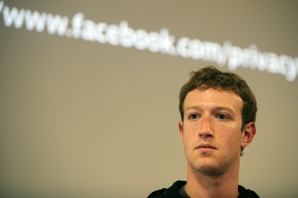
If you've ever felt that your information was never truly private on Facebook, the federal government agrees; and today the Palo Alto-based social network announced it would settle charges related to those very concerns.
The Federal Trade Commission announced a proposed settlement with Facebook, resolving its claims that the company repeatedly deceived members about just how private their personal information really is. At a glance it would seem that what Facebook told users it would not do, it did, and many of the things it promised to do, never happened. The FTC wants this settlement to send a strong message.
"To consumers, be assured that Facebook must seek your consent before overriding privacy settings," says FTC Chairman Jon Leibowitz. "To businesses looking to be part of the growing cyber-economy, be mindful that you must design privacy protections into every phase of your product development."
The federal complaint alleges several violations of the Federal Trade Commission Act, starting with changes to the site made in 2009. Here's the FTC's simplified description:
- In December 2009, Facebook changed its website so certain information that users may have designated as private – such as their Friends List – was made public. They didn't warn users that this change was coming, or get their approval in advance.
- Facebook represented that third-party apps that users' installed would have access only to user information that they needed to operate. In fact, the apps could access nearly all of users' personal data – data the apps didn't need.
- Facebook told users they could restrict sharing of data to limited audiences – for example with "Friends Only." In fact, selecting "Friends Only" did not prevent their information from being shared with third-party applications their friends used.
- Facebook had a "Verified Apps" program & claimed it certified the security of participating apps. It didn't.
- Facebook promised users that it would not share their personal information with advertisers. It did.
- Facebook claimed that when users deactivated or deleted their accounts, their photos and videos would be inaccessible. But Facebook allowed access to the content, even after users had deactivated or deleted their accounts.
- Facebook claimed that it complied with the U.S.- EU Safe Harbor Framework that governs data transfer between the U.S. and the European Union. It didn't.
For his part, Facebook co-founder and CEO Mark Zuckerberg isn't fighting the settlement. In a blog post he admits that his company has "made a bunch of mistakes" that have come to dominate the conversation about the social network.